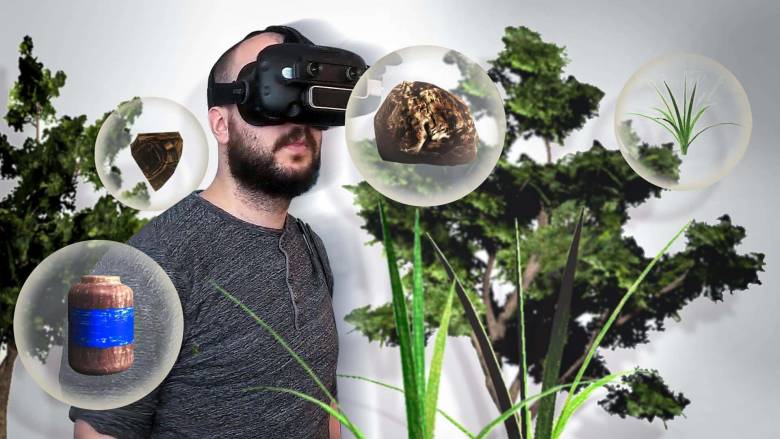
As we shift much of our lives online to stay safe during the COVID-19 pandemic, we can learn a lot about the full potential of digital technologies from a group of specially trained OCAD University students.
Today, students in OCAD U’s Digital Futures Program, a graduate program offered in partnership with the Canadian Film Centre Media Lab, will share their research into how we can innovatively use current and emerging digital tools and platforms to drive change in creative sectors. Taking place online this evening from 6 to 8 p.m., cyberhaze: Digital Futures Online Graduate Thesis Exhibition 2020 is a virtual exhibition of their thesis projects that is free to the public (registration is required).
While the plan for a live event at the Toronto Media Arts Centre was scuttled by the coronavirus, with the support of faculty members, these tech-savvy students have pivoted in just a few weeks to create a captivating online experience.
This exhibition is what the students have been working towards for an entire year, so we still want to share their work,” says Kate Hartman, Graduate Program Director, Digital Futures and Associate Professor, Faculty of Liberal Arts and Sciences at OCAD University.
“They have been amazingly resilient and motivated during this difficult time and have managed to pull things together for this online exhibition.”
The web exhibition will kick off with an introduction by Dean of Graduate Studies Ashok Mathur, and four faculty-led student panel discussions on different themes. Then, viewers will be treated to a display of the projects, which vary in format according to the requirements of their chosen degree: Master of Design (MDes), Master of Fine Arts (MFA) or Master of Arts (MA).
Frank Ferrao investigated how to pursue cost-effective digital project-based learning in elementary education as a way to foster the four Cs — creativity, critical thinking, communication and collaboration.
Turning her attention to the climate crisis, Jingpo Li developed an augmented reality application that helps people change their shopping habits so they can live more sustainably. Also focusing on sustainability was Mazin Chabayta, who used discarded materials to create musical instruments as a way to empower people to become resourceful makers.
Other projects looked at topics such as optimizing data-tracking health and fitness wearables; combining VR with live video to create a mixed reality experience; and using hypertext fantasy storytelling to explain the AIDS virus to new audiences.
“Our students have learned how to use technology to achieve positive change,” Hartman says. “This is a critical skill to have at a time when we are working and relating to each other in new ways.”
Previews of the projects can be seen on the DF Thesis website. Links to full project exhibition pages will be revealed on Friday, April 3 at 6 p.m.